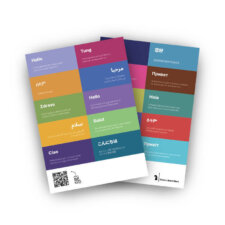Types of Permits
Working in Switzerland or remaining in the country for more than 3 months requires a permit. The permit is issued by the cantonal Migration Office (Migrationsamt). There are short-term permits (up to 1 year), residence permits (temporary), settlement permits (permanent) as well as cross-border commuter permits.
- Short-term permit (L): This permit is for people who will reside in Switzerland for a limited time (usually 1 year) for a particular reason. Most citizens of EU-/EFTA-countries who have evidence of a work contract with a duration between 3 months and 1 year are entitled to this permit.
- Residence permit (B): This permit is for people residing in Switzerland for an extended period of time. Most citizens of EU-/EFTA countries are entitled to this permit if they have a work contract with a duration exceeding 1 year. EU-/EFTA-citizens will receive permits for a duration of 5 years. Citizens of other countries will receive permits for a duration of 1 year after which an extension must be applied for. The extension may be granted under certain conditions, such as that applicants take German classes. Applicants are not entitled to an extension. Reasons that may act against an extension include, for example, a criminal offence or dependency on social welfare. The residence permit expires upon an uninterrupted period abroad of more than six months. Recognised refugees are also granted B permits.
- Settlement permit (C): This permit is granted following 5 or 10 years of Swiss residency. Here, too, different conditions apply to people from EU/EFTA states and third countries. For people moving abroad, the settlement permit may be retained under certain conditions for a maximum period of four years. This requires submission of an application to the Migration Office.
- Provisionally admitted foreigners (F): This permit is granted to asylum seekers who have not been officially recognised as refugees, but have been provisionally admitted. This permit must be renewed every year.



